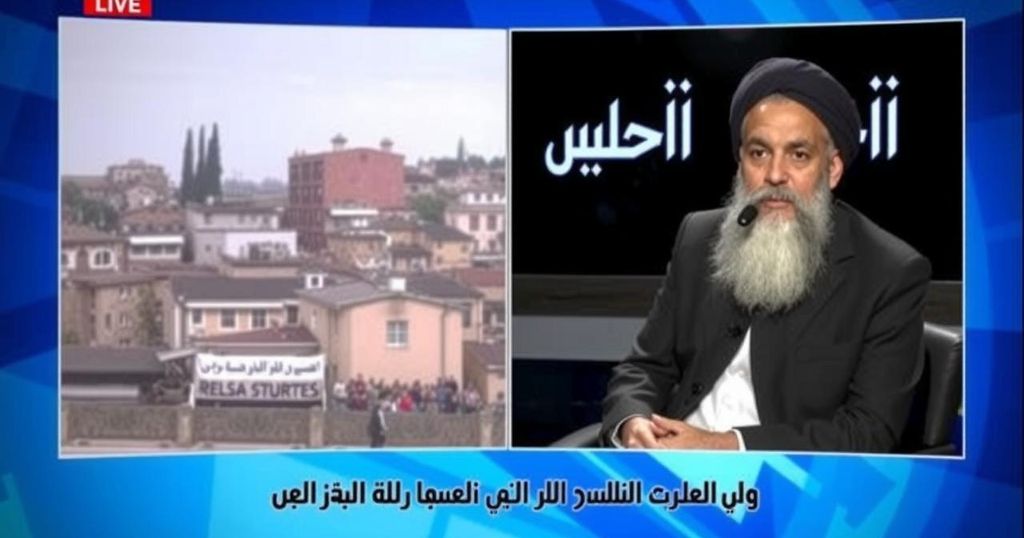Julani Declares No Justifications for Foreign Interventions in Syria After Iranian Exit
Ahmad “Abu Mohammad al-Julani” al-Sharaa, the HTS leader, highlighted in a recent interview that Israel’s reasons for military involvement in Syria are no longer valid following the Iranian withdrawal. He emphasized the need for reconstruction and stability, condemning further military conflicts while calling for international diplomatic engagement. Julani also outlined plans to address widespread poverty, curb captagon production, and dissolve armed factions under one Syrian authority.
In a recent interview with Syria.tv, Ahmad “Abu Mohammad al-Julani” al-Sharaa, the leader of Hayat Tahrir al-Sham (HTS), articulated his vision for Syria’s future and international relations, declaring that the pretexts for Israel’s military presence in Syria are invalid now that Iranian forces have exited the region. He emphasized the necessity for reconstruction and stability in Syria, arguing against new conflicts that could exacerbate the existing humanitarian crisis. Julani urged the international community to respect Syrian sovereignty and promote diplomatic resolutions to ensure peace.
He also criticized the Iranian regime for transforming Syria into a base for military aggression, reiterating that the issues lie with their policies, not the Iranian populace. Addressing relations with Russia, he acknowledged the destructive role of the Russian air force in civilian casualties during the civil war, advocating for a reassessment of this relationship in light of shared interests.
Julani visioned an evolution from revolutionary fervor to state governance, highlighting the need for legal and institutional frameworks in Syria. He asserted that the Assad regime has perpetuated poverty through corruption and feudal practices. To address this, he pledged to combat the production and trafficking of captagon, a drug linked to the narco-state image of Syria, and reaffirmed his commitment to protecting minority communities.
Furthermore, Julani recognized the distinction between the Kurdish community and the PKK organizations, suggesting an emerging alliance among Syrian opposition groups. He announced that the Syrian Defense Ministry would disband all armed factions, centralizing authority under the state.
Julani’s statements indicate a shift in leadership approach aimed at stability and reconstruction within Syria, moving beyond mere revolutionary zeal.
This article captures significant statements made by Ahmad al-Julani, the leader of Hayat Tahrir al-Sham (HTS), during a landmark televised interview. His comments shed light on the complex dynamics in Syria, particularly in relation to international interventions, particularly by Israel and Russia, as well as internal governance challenges following the long-standing conflict in the region. Al-Julani’s vision reflects an aspiration for a transitional phase from armed resistance to state-building, amidst a myriad of socio-economic issues stemming from the Assad regime’s longstanding rule.
In summary, Ahmad al-Julani’s declarations mark a pivotal moment in the dialogue surrounding Syria’s future. His call for reconstruction, stability, and international cooperation, alongside a firm stance against illicit drug production, illustrates a transformative approach to governance in post-conflict Syria. By seeking to distinguish between the Iranian policies and the Iranian populace, as well as between different Kurdish factions, he shows a high level of political awareness necessary for navigating the complex landscape that Syria faces today.
Original Source: www.jpost.com




Post Comment